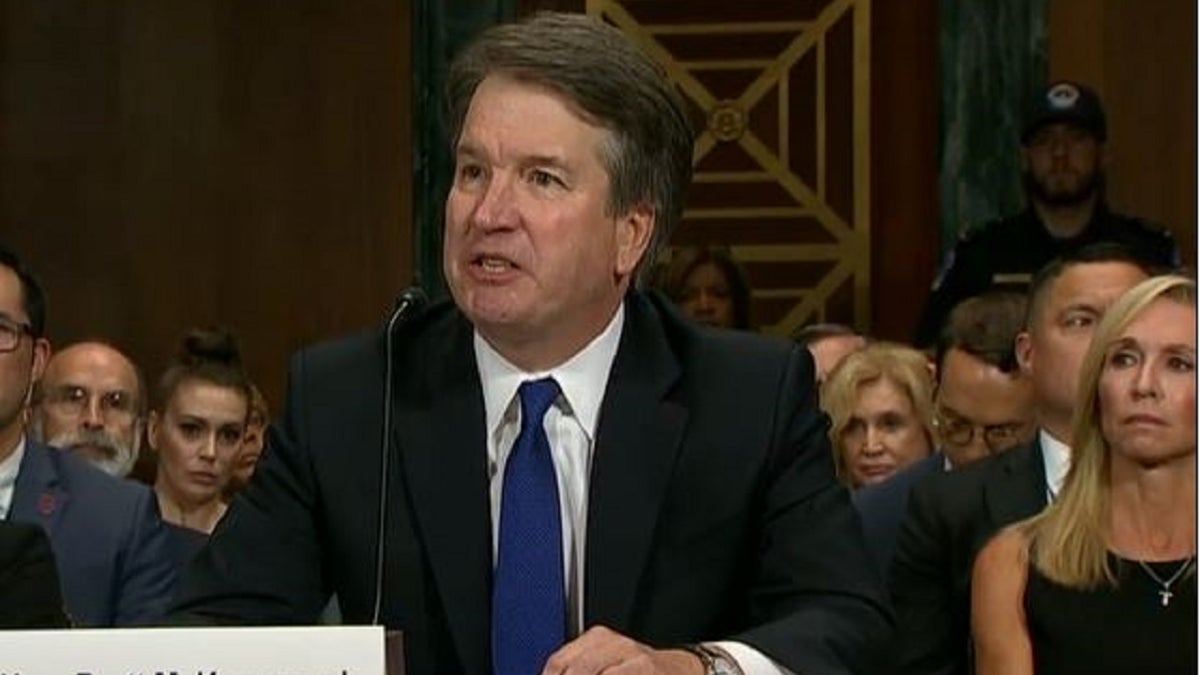Fox News Flash top headlines for August 9
Fox News Flash top headlines for August 9 are here. Check out what's clicking on Foxnews.com
A promising high school football star, Brian Banks lost 11 years of his life after being wrongfully accused of rape by a fellow Long Beach Poly student in 2002 and persuaded to plead no contest in a California court at just 17 years old.
In his almost six years behind bars, Banks combed the state’s penal code in search of a legal loophole he could use in his protracted fight for freedom. Even after being released, his adulthood remained in tethers – stringent parole and bracelet tracking, unable to find a job, his USC football recruitment gone, facing life as a registered sex offender and a hamstrung financial situation after his mother sold much of what she owned to pay his legal fees.
But with an unwavering faith in God and eventual support from the California Innocence Project, which advocates for prisoners in the state who may have been wrongfully incarcerated, Banks was eventually able to secure a recantation on tape from his accuser – who had incidentally been awarded $1.5 million from the school district after suing for lack of security – and convince the district attorney to re-open the case.
The once-sure soon-to-be pro had relentlessly navigated a decade-long road to exoneration and won a rare victory against the formidable justice system.
SHUNNED CONGOLESE REFUGEE ON RAISING A SON BORN OUT OF RAPE: THE BABY HAD A RIGHT TO LIVE
A biopic about his emotional journey – five years in the making – finally debuts in theaters nationwide on Friday after a postponement. It’s premiere at the L.A. Film Festival last year collided with the Brett Kavanagh confirmation hearings, which spawned deep political divisions after Christine Blasey Ford accused the then-Supreme Court nominee (and now Justice) of sexual violence decades earlier.

Brian Banks biopic hits theaters Friday. (Gidden Media)
Nonetheless, “Brian Banks,” with the tagline “Broken System, A Man Who Wouldn’t Break It,” is receiving its Hollywood moment. But the film, which stars Aldis Hodge, Greg Kinnear and Morgan Freeman, still comes amid the challenging glare of the #MeToo era, as it sheds light on the rarely talked about subject of false sexual assault allegations, their prevalence and the aftermath.
Rape, which overwhelmingly affects women over men, is also regarded as one of the most underreported of all crimes in the United States, with more than sixty percent – as per the National Sexual Violence Resource Center – not even reported to law enforcement at all. Subsequently, activists are quick to underscore the number of bona fide assaults far eclipses false accusations.
The FBI put the figure of “unfounded” rape allegations at eight percent – just a slither of those even reported in the first place – a figure that appears to date back to the 1990s.
And a 2017 study in the Journal of Forensic Psychology, which examined cases over a five-year period up to 2010, concluded that “approximately 5 percent of the allegations of rape were deemed false or baseless. That was at least five times higher than for most other offense types.”
Some legal experts contend that nobody really knows the prevalence of false accusations – but the Banks’ anecdote is a reminder that it does happen.
“There is a lot of bad data out there that keeps getting reported as factual, like the two percent figure. And there are many confounding variables,” Brent Turvey, Director of the Forensic Criminology Institute and author of the 2017 book “False Allegations: Investigative and Forensic Issues in Fraudulent Reports of Crime,” told Fox News. “Law enforcement will sometimes talk people out of making a false report, and they usually have to maintain strong relationships with the victims’ advocates communities. But every single allegation no matter the source has to be investigated, the protocol should be followed, and it shouldn’t be [based on how] the investigator feels.”
A 2017 report published by the U.S. National Institute of Health stated “complainants file a false allegation out of revenge, to produce an alibi or to get sympathy. A new list of motives is proposed in which gain is the predominant factor. In the proposed list, complainants file a false allegation out of material gain, emotional gain, or a disturbed mental state.”

Brett Kavanaugh testifies before the Senate Judiciary Committee.
The Daily Wire listed 35 recent examples of men being unjustifiably accused of sexual assault, while adding “pointing out false accusations does not take away from supporting sexual assault survivors, because false accusations devalue actual incidents of sexual assaults.”
The majority of case studies happened either on or involved high school or university campuses, and include incidences both in the United States and abroad.
MALE RAPE EMERGING AS ONE OF THE MOST UNDER-REPORTED WEAPONS OF WAR
While most did not result in the wrongfully accused being thrown behind bars – with some exceptions – and ultimately the erroneous narratives were unraveled, some legal experts say it’s important to acknowledge the many cases that aren’t exposed.
“Unfortunately, they are more prevalent than one would think. Often times people are forced into being a victim by shame from friends, family, or even healthcare workers,” said Troy Slaten, a California-based criminal defense attorney.
Slaten added that the criminal justice system is designed to have people plead guilty, which can lead to something akin to a life sentence even for those wrongfully accused.
“If somebody is in custody awaiting trial, where they are supposed to be presumed innocent until proven guilty, there is a lot of pressure to enter into a plea deal so that you can get out of jail,” he said.
In the years since the Banks saga, some activists have turned attention to Title IX in American schools – the federal law that prohibits discrimination on the basis of sex in any federally funded education program or activity – which has received praised for both protecting victims of assault and stirred controversy over criticism it doesn't allow for due process.
Organizations such as Save Our Sons purport to be “dedicated to the families whose college sons have been falsely accused of sexual misconduct” and offer advice and legal suggestions for those accused of IX sexual assault violations.
And, unlike Banks, not all can end up with a Hollywood-esque ending.
After Banks’s exoneration made headlines in 2012, his lawyer urged NFL teams across the country to give Banks another shot at his dream, but ultimately the years out of the game had taken a toll. The next year, he was signed by the Atlanta Falcons, but released after four preseason games. He was later hired by NFL Commissioner Roger Goodell to work in the league’s Department of Operations and has since left that post to pursue speaking opportunities, write a memoir and advocate for others who have endured a miscarriage of justice.
In Turvey’s view, the answer to ensuring justice is upheld lies first and foremost with law enforcement.
“To determine the credibility of a complaint, both the complainant and the victim must have the right to be heard, and to be believed, until contradicted by the results of an impartial investigation of the evidence,” he noted. “Every report has to be treated the same. We have to care every single time someone is wrongfully convicted of a crime – and both false reporting of a crime and false criminal allegations made against persons are a crime.”










































